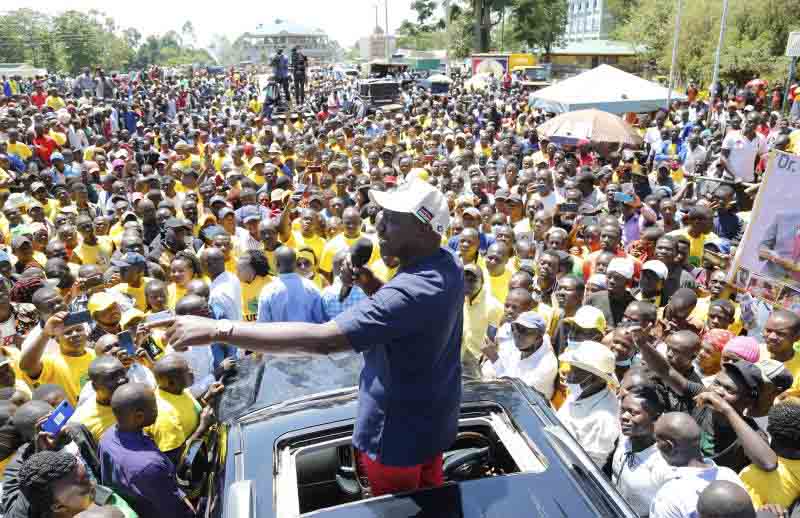×
The Standard e-Paper
Stay Informed, Even Offline

Deputy President William Ruto addresses traders at Khayega Market during an empowerment programme in Kakamega County. [Susan Nyamasege, DPPS]
The race for the presidency demands that aspirants cover as much ground as possible. However, no political bigwig can be everywhere at once, hence need for trusted allies who steer the campaigns.